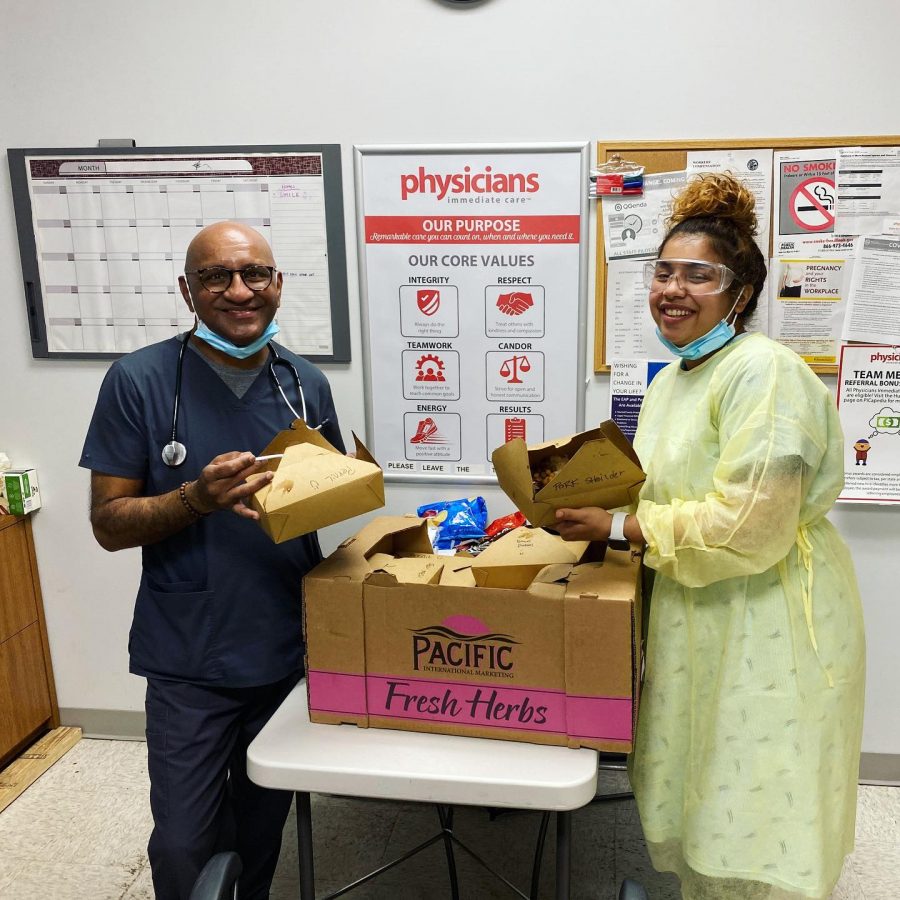Alum creates opportunity to give during COVID-19 pandemic
Meals for Chicago provides meals for essential workers
Coronavirus has prevented us from doing the things we love and, in many cases, things important to our survival. Eating enough has become difficult for the people everyone relies on most: essential workers.
However, in a city as big as Chicago, there are bound to be some giving people who take action to feed those who are coming face to face with COVID-19 for the sake of our community. Jasmine Truong, a 2013 New Trier graduate, along with colleague Victoria Li decided it was time for something to be done. That is how Meals for Chicago was born.
Meals for Chicago is, as stated on their website, an organization designed to “unite diners, restaurants, and essential workers.” This means that MFC contacts various food services and identifies essential workers who need extra meals. Gig economy workers, or workers who prefer freelance jobs, then transport the food from those services to the frontline workers.
The whole process is a refined, simplified version of initiatives in other cities. Meals for Chicago recognizes the importance of efficiency in getting food to essential workers and has thus broken down the typical procedure into the two essential groups, those being diners and essential workers.
“It’s generally really difficult to make something like this happen because of logistics or the vetting processes, and I think that’s what Meals for Chicago takes out of the equation,” Truong said. “[Meals for Chicago] makes it really easy for these supply chain partners to continue doing what they were doing before this pandemic.”
One of those supply chain partners is The Fresh Plan, an organization that typically delivers meals to participants as part of a broader meal plan. During pandemic, the service has donated over 630 meals to the community and has worked alongside Meals for Chicago to maximize their contribution. For The Fresh Plan Giving, giving to the Chicago community has left them with a sense of satisfaction.
“The fact that our business could help during this horrible time has been very fulfilling,” said Betsy Epton, who founded The Fresh Plan with her husband. “Normally when a catastrophe hits, I don’t know what to do, but the fact that we’re a local company and we can deliver right to the people who want the food has been really rewarding.”
Not only do food distributors get to experience the joys of giving, but the system also reflects well on their business. Andrew Chao from Somethin’ Sweet Donuts, the first service to partner with Meals for Chicago, claims that the ethical aspect of working with them is something many people respect.
“I think many people share the same desire of wanting to help out during this crisis,” said Chao. “By seeing a business like ours doing just that, it might make them want to support us in turn.
In mid May, nationwide food bank network Feeding America estimated that, due to the pandemic, 1 in 6 Americans could go hungry. We can’t face this pandemic on an empty stomach, so we need to keep supporting organizations like Meals for Chicago who are using their time and energy to make sure we’re facing coronavirus at our best.
“It’s hard to know what things will look like coming out of all this,” said Truong. Even in her uncertainty, she hopes for one thing. “Ideally, there’s no market for what we do, and nobody wants or needs our help.”







































